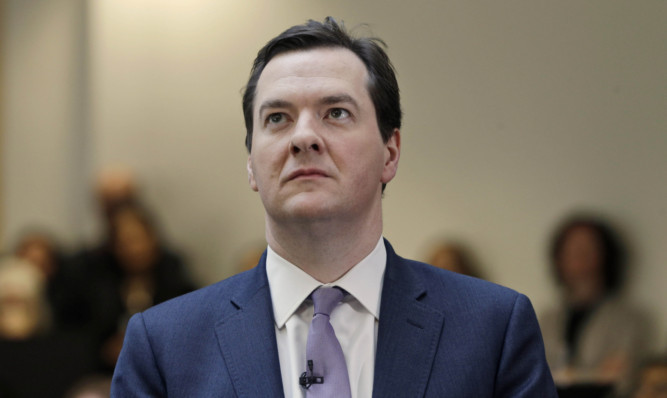Chancellor George Osborne has linked the case of child killer Mick Philpott to the need for reform of the benefits system, questioning why taxpayers were funding “lifestyles like that”.
Mr Osborne, who has been leading the Government’s defence of its sweeping welfare changes, stressed that Philpott was responsible for his “absolutely horrendous” crimes.
But he said there was a “question for government and for society” about the benefits that allowed Philpott to live the way he did.
Philpott, who was jailed for life with a minimum term of 15 years for killing six of his children, lived in a council house in Derby, claimed thousands of pounds in benefit and refused to get a job.
When asked on a visit to Derby if the Philpotts were a product of Britain’s benefit system, Mr Osborne said: “Philpott is responsible for these absolutely horrendous crimes, these are crimes that have shocked the nation. The courts are responsible for sentencing.
“But I think there is a question for government and for society about the welfare state, and the taxpayers who pay for the welfare state, subsidising lifestyles like that. And I think that debate needs to be had.”
Critics have attacked the Government’s wholesale changes to the welfare system which enter into force this month.
Earlier this week the Chancellor hit back at opponents of the changes, accusing them of talking “ill-informed rubbish”.
In the face of growing pressure from churches, charities and opposition parties, Mr Osborne said suggestions the changes marked the end of the welfare state were “shrill, headline-seeking nonsense”.
With the Government keen to reduce the welfare bill a raft of changes are being introduced this month, including an average £14-a-week cut in housing benefit for council tenants deemed to have a spare room – dubbed the “bedroom tax” by opponents.
Wider welfare and tax changes will also see council tax benefit funding cut, and working-age benefits and tax credit rises pegged at 1% – well below inflation – for three years.
Disability living allowance (DLA) is being replaced by the personal independence payment (PIP), while trials are due to begin in four London boroughs of a £500-a-week cap on household benefits, and of the new Universal Credit system.
